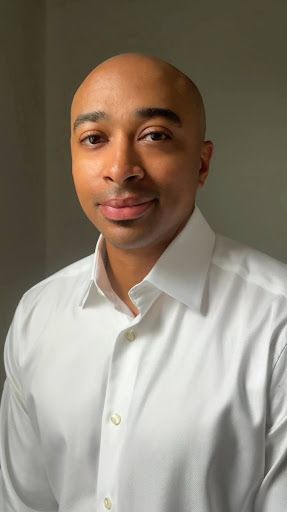Jamil Taylor Forges a New Path In a Highly Restrictive Industry Utilizing His Financial Expertise

For those who are still living in an era where they think cannabis is illegal, hard to access, or run by hobbyists and hustlers, Jamil Taylor is here to tell you otherwise. Today's cannabis industry is serious business, built on complex regulations, ruthless competition, and a future ripe for consolidation. And Taylor, COO of The Village Brands, is among those finance-savvy entrepreneurs, leading the way.
From venture capital firms to dispensary floors, Taylor's story is one of transformation and vision. "I was in Los Angeles, around 2012, when I met the owner of a retail dispensary," Taylor recalls. "I didn't even know what that was." Out of curiosity, he visited the shop and was stunned. "Budtenders had name tags. There was branding, packaging, and even receipts for purchases. I was blown away." That encounter would spark a career pivot that has since made Taylor one of the most successful limited-license cannabis operators in the country.
Before entering the cannabis space, Taylor built his reputation in finance. He began his career as an investment banking analyst in Chicago, focusing on M&A and capital raising in the consumer and retail sectors. From there, he moved into private equity, executing leveraged buyouts and growth equity deals in the middle market. He had also co-founded a real estate investment firm that aimed at revitalizing urban communities.
That background in fund management, valuation, and operations became his secret sauce when cannabis entered the conversation. Back in Chicago in 2014, just as Illinois began rolling out its highly competitive medical cannabis program, Taylor saw his opportunity. "These were limited licenses," he explains. "Thousands of people applied. To win, you had to submit the most thorough, legally and financially sound request for proposal anyone had ever seen."
He partnered with a set of lawyers and set to work. "They ask for everything: a security plan, facility blueprints, inventory control, recordkeeping, staffing, financials, community impact, and more. It's one of the most rigorous application processes I've ever seen. But my background was built for this."
Taylor credits Illinois as a defining chapter in his journey. "Illinois is the Silicon Valley of the limited-license cannabis market," he says. "It was one of the first non-West Coast states to create a high-barrier model. The people who got in early are now major multi-state operators."
And it shows. Taylor has remained one of the top competitive cannabis license application writers in the U.S., having won many licenses in tough regulatory environments, including in Maryland, Illinois, New Jersey, Pennsylvania, Missouri, and New York. But that early success wasn't just about doing paperwork, but doing it with precision. "If there's 100 points possible in an application, you need all 100," Taylor shares. "It's not like school, where 95% is an A grade. If you miss two points, you're out because some other competitor got it right. And in this case, every point matters."
His strategy is leaving nothing on the table. "I've built a network where if we need a local partner, I can make the call. If the state wants a veteran, we find one. We match the rules and regulations down to the letter."
While federal legalization remains uncertain, Taylor believes the next big shift in cannabis is already underway: consolidation. "There are hundreds of licenses in various states around the country, many owned by small, undercapitalized operators," he says. "Eventually, consolidation has to happen. That's where private equity and venture capital will be needed—a huge opportunity for investors with capital."
Drawing on his background in M&A and restructuring, Taylor is already laying the groundwork. He says, "You identify struggling operators, streamline operations, cut executive bloat, and create profitable, scalable businesses that are attractive to investors." He envisions a wave of deal-making that mirrors other maturing industries, except that with cannabis, the margins and potential are still being defined. Taylor concludes, "The demand is real. The aim now is to build sustainable businesses around that demand."
© Copyright IBTimes 2024. All rights reserved.





















